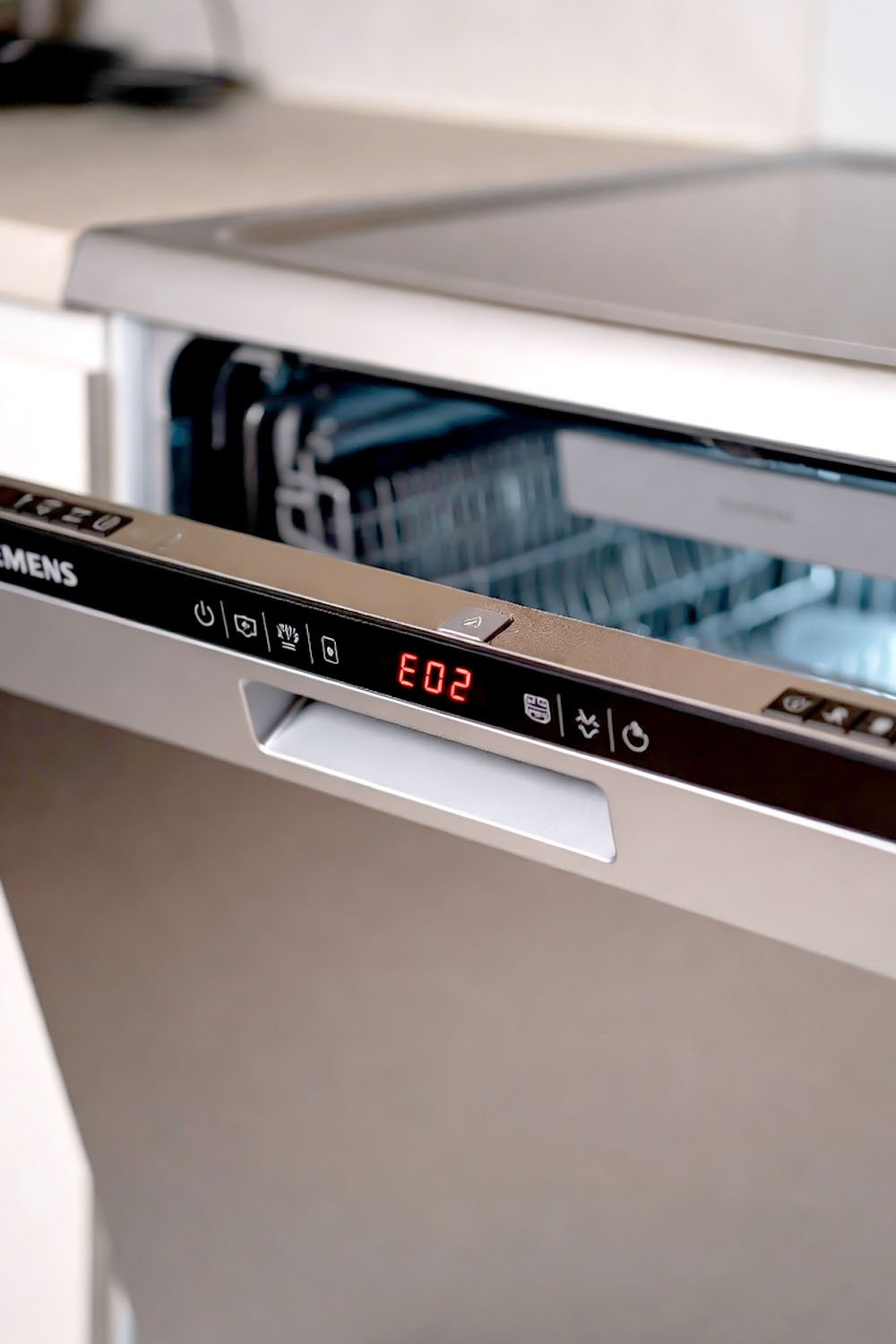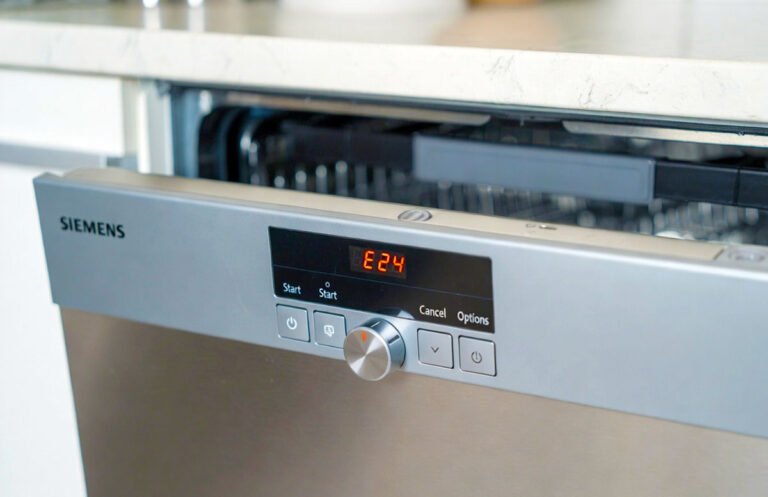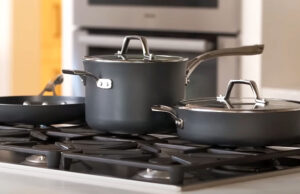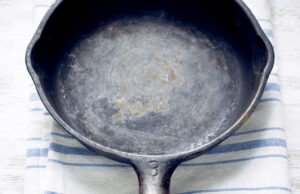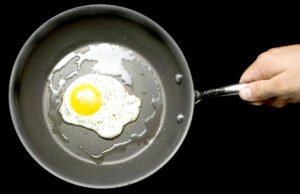As an Amazon Associate, I earn from qualifying purchases at no extra cost to you.
Can You Use Dish Soap in the Dishwasher? Expert Tips
The other night, I was in a rush and thought, “Maybe just a little dish soap in the dishwasher will work.” At first, it seemed like a good idea. But then, suds started overflowing, and suddenly the kitchen looked like a snowstorm had hit. It made me wonder—can you really use dish soap in the dishwasher safely, or is it just a recipe for disaster? Let’s explore why this happens and how to handle it without ruining your kitchen.
Key takeaways: Only use dishwasher-specific detergent to avoid massive suds and possible leaks. Dish soap can damage your dishwasher over time and leave residues on dishes. If you accidentally use dish soap, turn off the machine and clean up immediately. Consider homemade alternatives only in small, controlled amounts, and always rinse thoroughly.
Why Dish Soap Creates a Mess in Dishwashers
Dish soap is designed to create lots of bubbles for hand washing dishes. When used in a dishwasher, those bubbles don’t have anywhere to go. Suddenly, your machine fills with foam that can spill onto your counters and floor. I remember once thinking, “Just a little won’t hurt,” but within minutes, suds were everywhere. This happens because dishwashers rely on low-foaming detergents specifically formulated to clean without overflowing.
The foam isn’t just messy; it can harm your dishwasher. Suds can get into the wrong parts, clogging pipes and damaging sensors. If left unchecked, this might lead to costly repairs. It’s surprising how quickly something that seems harmless can turn into a real headache. One tip is always to check what type of detergent your dishwasher manual recommends—most explicitly warn against dish soap.
Sometimes, people try to improvise with homemade solutions. A tiny splash of dish soap mixed with baking soda might seem clever, but even that can produce unexpected suds. Even careful DIY attempts can backfire if the foam gets trapped in the dishwasher’s pump. It’s easy to forget that machines are designed for specific chemical formulas. I learned this the hard way once and now always stick to dishwasher detergent.
- Dish soap produces excessive foam in dishwashers
- Foam can damage dishwasher pipes and sensors
- Homemade mixtures can still create problems
- Always use dishwasher-specific detergent
How to Clean Up If Dish Soap Accidentally Spills
Imagine the horror: you realize halfway through a cycle that you used dish soap. First, turn off the dishwasher immediately. Opening the door slowly helps prevent suds from spilling further. It’s amazing how quickly soap can escape the machine once pressure builds. I’ve had to grab towels quickly and mop up a growing puddle on the floor.
Next, carefully remove dishes and rinse them under warm water. Even if they look clean, soap residue can cling, leaving streaks or a slippery feel. It’s tempting to just run the dishwasher again, but that only spreads the problem. Using a large container of water to manually rinse can be more effective than re-running the cycle right away.
Once dishes are out, focus on the dishwasher itself. Wipe down the interior with a damp cloth, removing as much foam as possible. Some people even recommend running a cycle with just water to flush remaining suds. I’ve tried both methods and found that alternating between manual wiping and a short water rinse works best.
Finally, prevent future accidents by keeping dish soap separate from dishwasher detergent. A small label or a designated spot can save a lot of mess. I realized even experienced cooks make this mistake if items are stored too close together. It’s a simple habit but a huge time-saver in the long run.
- Turn off dishwasher immediately
- Rinse all dishes manually
- Wipe interior and flush remaining suds
- Store dish soap separately from dishwasher detergent
Why Dishwasher Detergent is Special
Dishwasher detergent is formulated to clean without producing excessive suds. Unlike dish soap, it uses chemicals that break down grease efficiently under hot water. I noticed once that switching from hand soap to proper detergent cut rinse time in half. That’s because the detergent works with the machine’s temperature and pressure rather than just foam.
These detergents also contain ingredients that protect the dishwasher itself. Rinsing agents prevent mineral buildup, while enzymes break down leftover food. Dish soap doesn’t have these additives, so repeated use can leave gunk inside your machine. I used to skip the detergent once in a hurry and ended up spending an hour cleaning the filter. Not fun at all.
Another advantage is that dishwasher detergent is calibrated for your dishwasher’s cycles. It dissolves properly, leaving no residue on dishes or glasses. This is why even cheap dishwasher detergents are better than dish soap—they’re engineered for the environment inside the machine. It’s like comparing a key made for a lock to a stick trying to force it open.
Using the right detergent also avoids long-term maintenance issues. Pumps, filters, and sensors all last longer without foam interference. I always think of it like preventive care: a small upfront cost saves a big headache later. Your dishes will come out sparkling, and your dishwasher will stay healthy.
- Dishwasher detergent produces low suds
- Protects machine from buildup
- Designed to dissolve fully
- Prevents long-term maintenance issues
Can You Use Alternatives Safely?
Sometimes, people ask if vinegar or baking soda can replace dishwasher detergent. Small amounts of vinegar can help remove water spots and deodorize, but they don’t clean grease effectively. I tried adding vinegar once and noticed dishes were streak-free, but some food residue remained. It’s useful as a supplement, not a replacement.
Baking soda can also help with odors or stubborn stains. Sprinkling a small amount in the bottom of the dishwasher before a cycle can boost cleaning. But even safe alternatives shouldn’t replace proper detergent entirely. I always tell friends, “Think of them as helpers, not the main actor.” They improve results but won’t handle a full load of greasy pots.
If you really want DIY options, mix them carefully. For example, half a cup of baking soda plus a splash of vinegar can freshen up the dishwasher after a standard cycle. Avoid large amounts, or you risk creating suds or reactions that could clog parts. I’ve experimented a bit, and smaller quantities always work better.
Using these alternatives occasionally is fine, especially for maintenance cycles. Just remember, they’re not substitutes for real detergent. Think of them like seasoning on food—it enhances, but it doesn’t replace the main ingredient. Your dishwasher will thank you if you stick to the proper cleaning routine.
- Vinegar and baking soda are supplemental
- They don’t remove grease fully
- Small amounts are safest
- Use alternatives for maintenance, not main cleaning
Signs Your Dishwasher Was Damaged by Dish Soap
After a dish soap incident, your dishwasher might show warning signs. Excessive foam can leave residue, clogging filters or causing drainage issues. I once noticed water pooling at the bottom after a foam disaster, signaling a partial clog. Ignoring these signs can lead to bigger repairs.
Strange noises or sensors malfunctioning are other common symptoms. Soap can reach the pump or electronics, interfering with operation. I learned this the hard way when the cycle stopped mid-cleaning and dishes were still dirty. Paying attention early can prevent expensive repairs later.
Dishes themselves may appear cloudy or feel slippery. That’s usually soap residue left behind, indicating the machine isn’t rinsing properly. I recommend checking the spray arms for clogs too—they often get coated with foam. A quick visual check can save hours of frustration.
Finally, an unpleasant smell can linger. Soap buildup combined with trapped food creates odors. Running an empty cycle with a dishwasher cleaner or vinegar can restore freshness. A little maintenance goes a long way, and catching problems early prevents long-term damage.
- Residue or water pooling at the bottom
- Strange noises or stopped cycles
- Cloudy or slippery dishes
- Lingering odors after cycles
Tips to Prevent Future Mistakes
Prevention is easier than cleanup. One tip I swear by is labeling shelves or detergent compartments. It’s amazing how often small mistakes happen just because items are too close. Clear labeling reduces accidents immediately.
Another helpful habit is keeping a small container of detergent near the dishwasher. When it’s easy to grab, you’re less likely to reach for dish soap out of habit. I also make sure kids or guests know the difference. Even a tiny splash can create chaos.
Check your dishwasher manual occasionally. Sometimes manufacturers provide useful hints on avoiding common mistakes, like using the right detergent type. I found a tip about not overfilling the detergent compartment that completely solved my foaming issue. A quick read can prevent hours of frustration.
Lastly, if you ever experiment with DIY alternatives, do a small test first. This way, you can see how your machine reacts without risking the whole dishwasher. A little care goes a long way in keeping dishes clean and the kitchen mess-free.
- Label shelves and compartments
- Keep detergent handy
- Read dishwasher manual for tips
- Test DIY alternatives in small amounts
Final Thoughts
Using dish soap in the dishwasher might seem harmless, but it can cause massive foam, damage, and residue. Stick to dishwasher detergent for safe, effective cleaning. Small habits, like labeling and proper storage, prevent accidents. Alternatives like vinegar or baking soda are useful but should never replace detergent. A little caution goes a long way to protect your dishes, your machine, and your sanity.
| Scenario | Recommended Action | Notes |
|---|---|---|
| Accidentally used dish soap | Turn off dishwasher, remove dishes, rinse manually | Prevents further foaming and damage |
| Light odor or residue | Run empty cycle with vinegar or baking soda | Helps clean and deodorize |
| Cloudy glasses | Use rinse aid | Prevents streaking and residue |
| Greasy pots | Use high-quality detergent | Ensures thorough cleaning |
| Clogged spray arms | Remove and rinse | Maintains proper water flow |
| Maintenance cycle | Add a small scoop of baking soda | Keeps machine fresh |
| Frequent mistakes | Label detergent area | Reduces accidental dish soap use |
| Sensor issues | Inspect interior and clean | Soap can affect electronics |
Frequently Asked Questions (FAQs)
Is it safe to use dish soap in the dishwasher occasionally?
No, even occasional use can cause excessive foam, damage sensors, and leave residue. Dish soap is designed for hand washing and doesn’t dissolve properly in dishwasher cycles. If a small amount accidentally goes in, turn off the machine, remove dishes, and rinse carefully. Repeated use increases the risk of clogs, pump damage, and messy overflow. Using proper dishwasher detergent is always safer and more efficient.
Can vinegar replace dishwasher detergent?
Vinegar can help remove water spots and deodorize but doesn’t remove grease effectively. It’s best used as a supplement or maintenance rinse rather than a full detergent replacement. For example, adding vinegar to the rinse compartment improves shine but won’t clean a greasy pan. Always pair it with dishwasher detergent for the best results.
Do I need to clean my dishwasher after using dish soap?
Yes, cleaning immediately is essential. Excessive suds can coat filters, spray arms, and sensors. Wipe the interior, remove residue, and run an empty water-only cycle to flush remaining soap. This prevents damage, odor, and clogs. Cleaning promptly keeps your dishwasher running smoothly and protects future cycles.
Is it okay to use baking soda in the dishwasher?
Small amounts of baking soda can help deodorize or remove minor stains, but it’s not a full cleaning agent. Sprinkle a little at the bottom for maintenance cycles, but avoid large quantities. Overuse can create foam or clog parts. Treat it as a supplement, not a replacement for dishwasher detergent.
Can using dish soap damage the dishwasher permanently?
Yes, repeated use can harm pumps, sensors, and filters. Suds can overflow into electronics, leading to costly repairs. Even a small accidental amount can create temporary issues, so immediate cleanup is necessary. Proper dishwasher detergent prevents these risks and protects the appliance long-term.
Do I need to rinse dishes before using dishwasher detergent?
Rinsing lightly helps prevent food clogs and improves cleaning efficiency. Large debris can block spray arms, reducing detergent effectiveness. Scraping off leftover food is usually enough; full washing isn’t necessary. Proper pre-rinsing ensures dishes come out spotless and protects your dishwasher.
Is using dishwasher detergent really better than hand soap?
Absolutely. Dishwasher detergent is formulated to clean under high heat, low-foam conditions. Hand soap creates foam, leaving residue and risking machine damage. Even cheap dishwasher detergent outperforms hand soap in cleaning ability, safety, and appliance protection. Stick to detergent for consistent results.
Can homemade alternatives replace commercial dishwasher detergent?
Homemade mixes like vinegar and baking soda can help with odors or minor maintenance but can’t fully clean dishes or grease. They’re good for supplementing detergent but not replacing it. Experiment in small amounts first to avoid foam or clogs. Commercial detergent remains essential for proper dishwasher operation.

